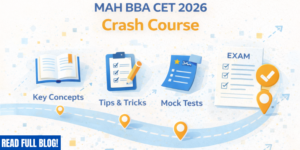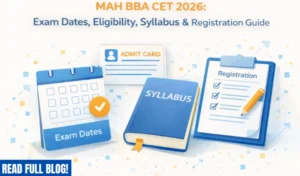Stepping into the job market is one of the most important transitions for students. While degrees and grades reflect academic strength, employers today are more interested in what you can actually do from day one. In the fields of accounting, taxation, and finance, this means having practical skills, confidence with tools, and the ability to handle real tasks.
For commerce students, building essential finance skills during college is the smartest way to stand out in interviews and secure good placements. Let’s look at the key skills that shape successful careers.
Accounting Fundamentals & Practical Documentation
Every finance career begins with strong accounting basics. It’s not enough to just know the theory, you must also understand how accounts are maintained in day-to-day business.
Students should practice:
- Creating and maintaining ledgers and journals
- Preparing balance sheets and profit & loss accounts
- Handling challans, tax forms, and invoices
- Managing corporate documentation like bank forms and vendor records
When students gain this exposure early, they enter jobs with confidence, ready to work without long adjustment periods.
GST & Taxation Knowledge
GST and taxation are the backbone of financial compliance in India. Companies actively seek candidates who can contribute to this area from the start.
Students should learn to:
- Prepare and file GST returns accurately
- Generate challans and manage invoices under GST rules
- Understand basics of income tax and ITR filing
- Stay familiar with compliance timelines and documentation
This skill makes a graduate far more valuable to recruiters, as every business depends on timely taxation work.
Proficiency in Accounting Tools
Modern accounting jobs revolve around technology. Recruiters look for candidates who can comfortably use accounting software and reporting tools, as these save time and improve accuracy.
Some essential tools include:
- Tally Prime for entries, ledgers, and GST tasks
- Excel (advanced features & dashboards) for reports
- Power BI for data visualization and analysis
- SAP/ERP systems for corporate-level finance management
Being fluent in these platforms ensures you are job-ready, not just degree-ready.
Financial Analysis & Decision-Making
Employers appreciate finance professionals who can move beyond recording data to interpreting it. That’s where financial analysis comes in.
Students should focus on learning to:
- Perform ratio analysis to measure company performance
- Prepare MIS reports that support business planning
- Understand cash flow and fund flow analysis
- Evaluate stock and debtor positions for decision-making
These skills turn accountants into business partners, helping companies make informed choices based on numbers.
Communication & Professional Etiquette
Finance roles require frequent interaction with managers, auditors, and clients. Strong communication skills make technical knowledge more impactful.
Students should work on:
- Presenting financial reports confidently
- Writing clear emails and business documents
- Practicing corporate etiquette during meetings
- Building grooming and personality skills for professional settings
A good communicator is more likely to impress in interviews and grow quickly within a company.
Adaptability to Technology & AI Tools
The finance industry is evolving fast, with automation and AI transforming the way tasks are managed. Students who are adaptable to these changes stay ahead in the competition.
Key areas to explore include:
- Using Excel AI features to simplify reporting
- Practicing with Power BI dashboards for analysis
- Exploring ChatGPT-style tools for summaries and client communication
- Learning CRM and automation software to track finance workflows
This adaptability ensures students remain relevant as technology keeps advancing.
Real-World Practice Through Internships
Learning in the classroom is important, but nothing compares to real-world practice. Internships bridge the gap between theory and application, making students career-ready.
Through internships, students can:
- Gain confidence in handling GST and tax filing
- Apply accounting tools in live projects
- Understand how finance teams work under deadlines
- Build professional habits that prepare them for full-time jobs
Even a short internship adds weight to a resume and helps students stand out during placements.
How Nilaya Helps Students Build These Skills
At Nilaya Education, finance training is designed to focus on what employers actually want. Programs like Smart B.Com, CAM, and CAFM ensure that students graduate with practical experience, not just book knowledge.
Highlights include:
- Hands-on exposure with GST, ITR filing, and corporate documentation
- Tool-based learning on Tally Prime, Excel, Power BI, and SAP
- Communication and personality grooming labs for interviews and client interactions
- Placement support backed by strong industry connections
- A track record of thousands of alumni working in top firms and finance roles
Nilaya’s practical-first approach ensures students don’t just pass exams—they step into jobs ready to perform.
Conclusion: Preparing Today for Tomorrow’s Opportunities
The job market values skills as much as degrees. By mastering accounting, GST, finance tools, communication, and adaptability to technology, students can confidently enter careers in accounts and finance.
👉 If you want to build these essential finance skills with expert guidance, explore programs at www.nilayaeducation.org










